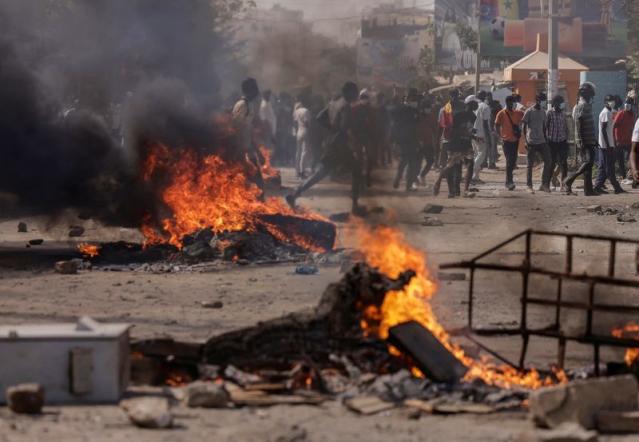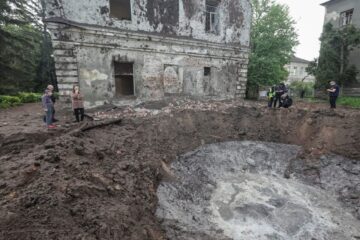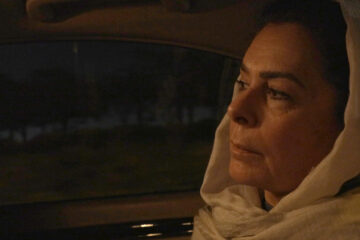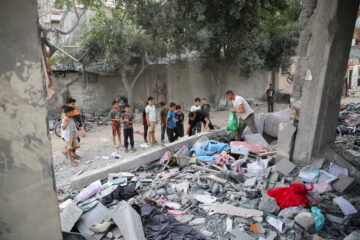Senegal battles first major wave of unrest over vote delay
 Senegalese demonstrators protest against the postponement of the Feb. 25 presidential election, in Dakar. Reuters
Senegalese demonstrators protest against the postponement of the Feb. 25 presidential election, in Dakar. Reuters
By Ngouda Dione and Cooper Inveen Reuters
Clashes between security forces and protesters on Friday gripped Senegal’s capital and other cities, the first widespread unrest over the delay of a presidential election that many fear could lead to protracted instability.
Less than three weeks before the Feb. 25 vote, parliament voted to push it back to December, sealing an extension of President Macky Sall’s mandate that has raised concerns that one of the remaining democracies in coup-hit West Africa is under threat.
In the capital Dakar, police in riot gear fired tear gas, stun grenades and what appeared to be rubber bullets at large crowds of protesters who were burning tyres and throwing stones, a Reuters reporter said.
One student was killed in the northern city of Saint-Louis in what would be the first death in the growing public backlash to the postponement, opposition leader Khalifa Sall said in an online post.
Reuters could not immediately verify the report. A representative of the student’s university did not respond to a request for comment.
“The hearts of all democrats bleed at this outburst of clashes provoked by the unjustified halting of the electoral process,” said Khalifa Sall, who has called recent events an “institutional coup.”
In Dakar, some of the demonstrators waved Senegalese flags, while others shouted slogans like “Macky Sall is a dictator”.
“We are ready to give our lives so that the people can be freed, so that Senegal can rid itself of Macky Sall,” said one protester by a pile of blazing tyres.
Demonstrators also faced off against police elsewhere, including Touba city in central Senegal, Thies city east of Dakar, the northern city of Richard Toll and Kolda in the south, residents told Reuters or posts on social media showed.
Sall, who has reached his constitutional limit of two terms, said he delayed the vote due to a dispute over the candidate list that threatened the credibility of the electoral process.
Some critics accuse him of trying to cling to power, while the West African bloc ECOWAS and foreign powers have criticised the move as a break with Senegal’s democratic tradition.
“Senegal has perhaps never experienced a crisis like the one we are experiencing and we must overcome it,” said Justice Minister Aissata Tall Sall. “We must calm spirits.”
In an interview on Friday, Tall Sall said the postponement was not the president’s decision but parliament’s. She also said legal challenges filed to the Constitutional Court did not fall in its jurisdiction.
“This postponement of the presidential election was done in perfect conformity with the constitution,” she said.
Not all agree. On Friday, the U.S. embassy in Dakar said the United States supported an earlier call from ECOWAS for authorities to restore the electoral calendar in line with the constitution.
“We have heard from a wide range of Senegalese political and civil society actors who share this view,” the embassy said in an online post.
The postponement bill was passed by 105 legislators in the 165-seat assembly on Monday after security forces broke up an attempt by a group of opposition members to block the vote and dispersed small-scale protests outside parliament with tear gas.
Thirty-nine lawmakers in opposition coalition Yewwi Askan Wi and several opposition presidential candidates have since filed legal challenges with the Constitutional Court.
Tall Sall said the court could not handle these because they did not fall in its purview. She did not say which legal body would look at the challenges, but said the fact opponents were turning to the courts meant “we are in a functioning democracy.”










